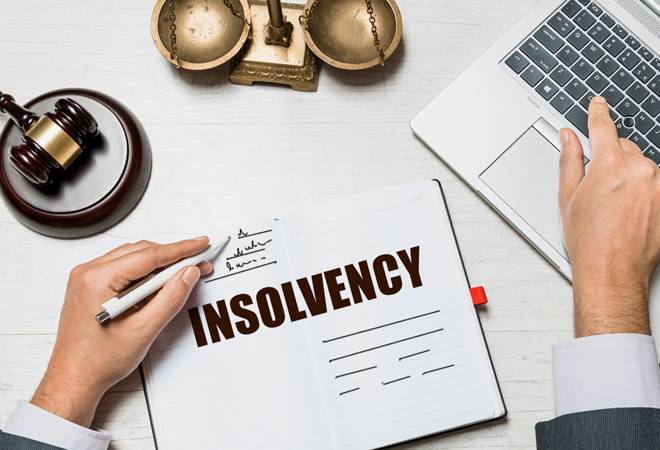Not known Details About Insolvency Practitioner
Table of ContentsThe Buzz on Insolvency Practitioner7 Simple Techniques For Insolvency PractitionerAbout Insolvency PractitionerThe 20-Second Trick For Insolvency PractitionerWhat Does Insolvency Practitioner Do?Insolvency Practitioner for BeginnersInsolvency Practitioner - TruthsWhat Does Insolvency Practitioner Mean?
Personal bankruptcy is the procedure whereby a business is wound up and its properties are offered off to pay lenders. This is generally the last hotel, as it can have an extremely unfavorable result on the firm's credibility. Receivership occurs when a business is not able to pay its debts and is positioned under the control of an external manager.Volunteer management is comparable to receivership, but it is initiated by the supervisors of the firm as opposed to the lenders. This alternative is usually made use of when a company is facing economic problems yet there is still really hope that it can be reversed. Corporate bankruptcy is a facility and serious concern that can have far-ranging effects for companies of all sizes.
8 Simple Techniques For Insolvency Practitioner
With the right aid, you can guarantee that your service has the most effective chance of weathering this tough time.
Whatever your factor for shutting your company, there are several factors to consider you need to resolve before 'shutting the doors'. There's likewise a lot you can do to make the procedure less demanding and improve outcomes. Closing down your organization is not just about meeting the functional and lawful needs.
Excitement About Insolvency Practitioner
Look after your employees As a company, you require to keep an eye on and provide support to your employees throughout this difficult time. Recognize any kind of feasible wellness and well-being concerns they could experience because of: task insecuritytransitioning through the sale of the businesschange in proprietors. You can: There are extensively 2 situations in which you would willingly close your organization.
You likewise: don't want to, or can't, sell the businesshave no-one to take it over. You might be shutting your company because: it's not covering its overheads and running costsyou can't sustain the operating costs while trying to offer it.
This may avoid you from becoming insolvent or insolvent, and assist you to leave business with no resilient effects. There are several things you need to deal with prior to shutting your organization. It's crucial to have an exit method. Your accounting professional, solicitor or business adviser will certainly have the ability to aid you with this.
A Biased View of Insolvency Practitioner
It provides a: timeline for completing activitieslist of legal requirements and various other considerations. Depending upon your legal structure, all or several of the following factors could put on you when you willingly shut your company. Speak to your accounting professional, solicitor and service advisor concerning lawful demands for closing your company. It is essential to spend for these solutions to guarantee you do it correctly and with the minimal variety of unfavorable consequences as possible.
You should settle all tax obligation problems for your organization, even if it's no longer trading. This includes your responsibilities concerning repayment of: additional benefit taxpay-as-you-go (PAYG)superannuationemployment termination. Discover extra regarding these responsibilities to employees. You'll likewise require to cancel your employees' settlement plan by following instructions on page 4 of the WorkCover recognizing your employees' settlement accident insurance policy (PDF, 828KB).
The Definitive Guide to Insolvency Practitioner

If you try to handle it on your own, you'll require to communicate with every lender individually to attempt to negotiate normal settlement amounts. Insolvency or insolvency consultants can: assistance you through the processhelp you comprehend your optionsnegotiate with your lenders in your place. They hold certain licences and credentials in this specialised field.
It's essential to acknowledge financial problem early so you can look at ways to avoid insolvency. You should likewise be conscious of lenders placing enquiries or defaults against your debt file.
Insolvency Practitioner Fundamentals Explained
Personal insolvency for sole investors and individuals within partnerships Personal insolvency treatments apply to: Before starting a personal insolvency top article process, it's essential to comprehend the: effect of the consequenceshow long the influence will certainly be., additionally known as a Component IX arrangement, permits you, or the selected manager, to negotiate with your financial institutions to pay a percent of the consolidated financial obligations over a duration of time to your administrator, instead than attempting to proceed making settlements to each financial institution.
Insolvency Practitioner Fundamentals Explained
Business bankruptcy and liquidation An 'insolvent company' is unable to pay its financial obligations or cover the cost of its overheads. In some scenarios, financially troubled firms may go right into liquidation. Liquidation is when an independent licensed liquidator is appointed to take control over the firm and end up the visit the website firm business in an organized means.
As kept in mind in the Introduction, while the report reveals specific preferences with respect to several of the more vital of these selections, it does not try to develop standards in this intricate location. In addition, it may need to be updated in the future to consider developments in this field.
An Unbiased View of Insolvency Practitioner
:max_bytes(150000):strip_icc()/insolvency.asp-final-15cb186ac9544f8a9b12416af2478ad8.jpg)